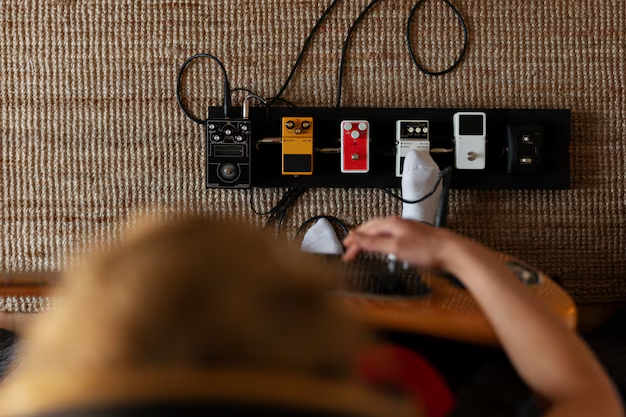Choosing the Right Extension Cord for Your Refrigerator: A Complete Guide
So you've recently rearranged your kitchen or perhaps moved into a new home, and now face the challenge of connecting your refrigerator to a power outlet that's just a tad too far. It might be tempting to grab any available extension cord, but can you use any one for your refrigerator? Making the right choice is crucial for both safety and functionality. Let’s explore how you can select the best extension cord for your refrigerator, ensuring it runs efficiently and safely.
📏 Understanding Electrical Requirements
Essential Electrical Basics
Before diving into specific types or brands of extension cords, it’s vital to understand the basics of electricity and how it relates to your refrigerator. Appliances like refrigerators consume considerable power, especially on startup due to the compressor's operation. Knowing the voltage and current (amperage) requirements is key in choosing the right extension cord.
- Voltage: Refrigerators typically run on standard U.S. home voltage, which is about 120 volts.
- Current: Most refrigerators require between 3 to 6 amps, but during startup, this can briefly surge higher.
Why the Right Extension Cord Matters
Incorrect extension cords can lead to several issues, such as overheating, which poses fire risks, while also potentially causing appliance malfunctions or damage. Extension cords must handle the electrical load without significant drops in voltage.
🔌 What to Look for in an Extension Cord
Cord Gauge
The "gauge" of an extension cord refers to its wire thickness, which affects the amount of current it can carry. Lower gauge numbers mean thicker wires that can carry more current. For refrigerators, it’s recommended to use a cord with a gauge of 14 or lower to handle the surge current effectively.
- 14-gauge cords are suitable for long distances or higher load appliances.
- 12-gauge offers even more capacity and is often recommended for medium-length connections.
Length of the Cord
The length of the extension cord affects how efficiently it can deliver electricity to your appliance. Longer cords have more resistance and can result in voltage drops, which reduces power efficiency and can stress your appliance’s motor.
- Opt for the shortest possible cord that reaches the outlet.
- Avoid using a cord longer than 10 to 15 feet if possible.
Rating and Certification
Ensure that the extension cord is rated for household electrical appliances. Check for certifications like UL (Underwriters Laboratories), which signals compliance with safety standards.
🛡️ Safety Considerations
Avoiding Common Hazards
Using the wrong cord can lead to potential hazards such as electrical fires or appliance damage. Follow these key safety considerations:
- Don’t use indoor cords outside and vice versa.
- Keep cords away from water or damp areas to prevent shock risks.
- Never plug one extension cord into another (“daisy chaining”), which can lead to overload and overheating.
Maintenance Tips
Regularly inspect your extension cord for any signs of wear or damage. Look for frayed wires, exposed inner cables, or broken plugs, and replace any compromised cord immediately.
⚙️ Additional Features to Consider
Surge Protection
Some extension cords come with built-in surge protection that can guard against electrical spikes. This extra protection adds a layer of safety, especially during storms or other power fluctuations.
Lighted Ends
Lighted ends on an extension cord can indicate live circuits, which makes it easier to troubleshoot power issues without needing other testers.
🔄 Alternative Solutions
While using an extension cord can be convenient, it isn’t always the best solution. Consider the following alternatives:
- Rearranging kitchen layout to ensure your refrigerator is closer to an outlet.
- Installing additional outlets to accommodate your appliance needs better.
✨ Summarizing Key Takeaways
Here's a simple summary to guide your selection:
- 🔌 Gauge Matters: Use 14-gauge or lower cords for optimal safety and efficiency.
- 📏 Mind the Distance: Choose the shortest possible cord for your needs.
- 🔍 Look for Certifications: Opt for cords with UL certification.
- ✅ Regular Checks: Inspect cords regularly for any signs of damage.
🌟 Empowering Your Choice
Selecting the right extension cord doesn’t have to be daunting. By focusing on your refrigerator’s power needs and ensuring safety standards are met, you can make an informed choice that keeps your kitchen functional and safe. This not only preserves the longevity of your appliance but also provides peace of mind in a well-powered home.
To wrap up, always approach power needs with an informed perspective, being mindful of both immediate usage and long-term safety. Keeping these key points in mind ensures your refrigerator operates efficiently, safeguarding your investment and your household.

